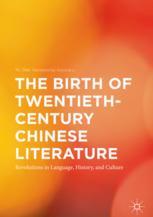

Most ebook files are in PDF format, so you can easily read them using various software such as Foxit Reader or directly on the Google Chrome browser.
Some ebook files are released by publishers in other formats such as .awz, .mobi, .epub, .fb2, etc. You may need to install specific software to read these formats on mobile/PC, such as Calibre.
Please read the tutorial at this link: https://ebookbell.com/faq
We offer FREE conversion to the popular formats you request; however, this may take some time. Therefore, right after payment, please email us, and we will try to provide the service as quickly as possible.
For some exceptional file formats or broken links (if any), please refrain from opening any disputes. Instead, email us first, and we will try to assist within a maximum of 6 hours.
EbookBell Team

5.0
40 reviewsThis study makes a linguistic case for the twentieth century revolution in Chinese language and literature. It offers a history of reform and change in the Chinese language throughout the country’s history, and focuses on the concept of ‘baihua’, a language reform movement championed by Hu Shi and other scholars which laid the foundation for the May fourth New Literature Movement, the larger New Culture Movement and which now defines modern Chinese. Examining the differences between classical and modern Chinese language systems alongside an investigation into the relevance and impact of translation in this language revolution - notably addressing the pivotal role of May Fourth leader Lu Xun - this book provides a rare insight into the evolution of the Chinese language and those who championed its development.